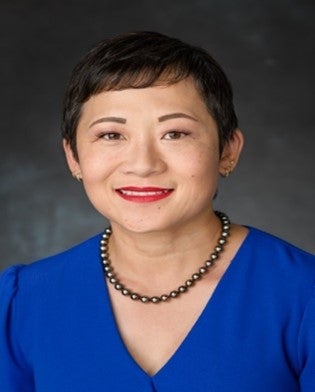Vascular Endothelial Growth Factor (VEGF) has been identified as a key regulator of angiogenesis, both acting as an endothelial cell mitogen and increasing vascular permeability. Elevated VEGF concentrations have been correlated with multiple ocular diseases, including age-related macular degeneration (AMD) with choroidal neovascularization (CNV) and diabetic retinopathy (DR). Landmark clinical studies demonstrated that anti-VEGF agent therapy (ranibizumab or aflibercept) was remarkably efficacious for AMD with CNV and DR; these drugs are now the gold standard treatment for these diseases. However, a major limitation for these treatments is that repeated dosing is required every four to six weeks. Frequent dosing is undesirable for a variety of reasons, including decreased patient comfort, increased likelihood of complications (e.g., endophthalmitis, retinal tears and detachment, intraocular hemorrhage, and cataract formation), and bolus administration of the agent. The repetitive treatment burden on the patients, family members, and clinicians is substantial. Consequently, there is a great need to develop a more effective, long-lasting, relatively non-invasive delivery method for anti-VEGF agents. My laboratory has created a Sustained Treatment with Anti-VEGF agents for Retinal diseases -Drug Delivery System (STAR-DDS), which utilizes biodegradable drug-loaded microspheres embedded into a biodegradable thermo-responsive hydrogel. The advantages of STAR-DDS are numerous and include easy injection into the vitreous via a small gauge needle. To our knowledge, STAR-DDS is the first system to demonstrate a sustained release of anti-VEGF for 6 months. This presentation will discuss the STAR-DDS platform and the safety and efficacy of STAR-DDS.

Dr. Kang-Mieler is the George Meade Bond Endowed Professor, Department Chair of Biomedical Engineering, and the Director of the Semcer Center for Healthcare Innovation at Stevens Institute of Technology, Hoboken, NJ, USA. She received her BA in Mathematics, MS in Applied Mathematics, and Ph.D. in Biomedical Engineering from Northwestern University. She completed a post-doctoral fellowship at the University of Illinois at Chicago in the Department of Ophthalmology and Visual Sciences. She is a Fellow of the American Institute for Medical and Biological Engineering (AIMBE) and the Association for Research in Vision and Ophthalmology (ARVO). Dr. Kang-Mieler’s NIH-supported translational research projects focus on ocular drug delivery, retinal imaging and analysis (including AI and machine learning), biomarkers, retinal hemodynamics, and electrophysiology. Her clinical interests encompass retinal vascular diseases such as age-related macular degeneration, diabetic retinopathy, and retinopathy of prematurity. Dr. Kang-Mieler actively participates in the Macula Society, the Retina Society, the Association for Research in Vision and Ophthalmology (ARVO), the Biomedical Engineering Society (BMES), the Asia-Pacific Academy of Ophthalmology (APAO), the Club Jules Gonin, and the Dowling Society. She has served on the ARVO Board of Trustees, representing the Retina section, and previously held the position of Vice President of ARVO. She participates in various research grant review panels, including the National Institutes of Health (NIH), where she recently completed her role as Chair of the Brain Imaging, Vision, Bioengineering, and Low Vision Technology Development (BIVT) panel. Additionally, she serves as the Secretary of the BMES Council of Chairs Executive Committee and is the President-elect of the Northeast Bioengineering League Executive Committee. She is the 2025 ARVO Foundation Honoree.


